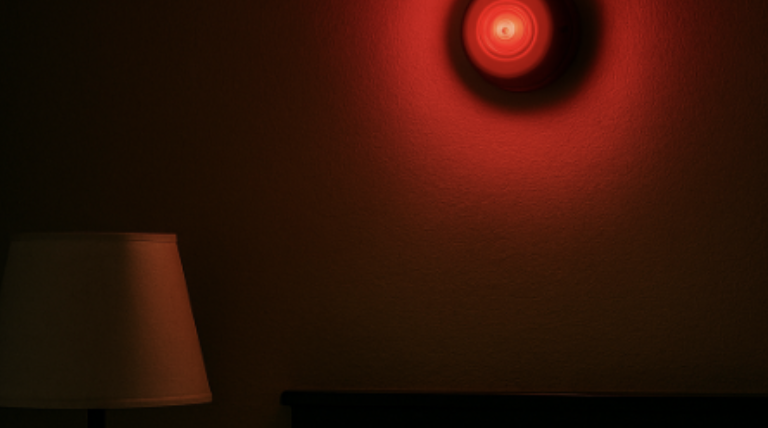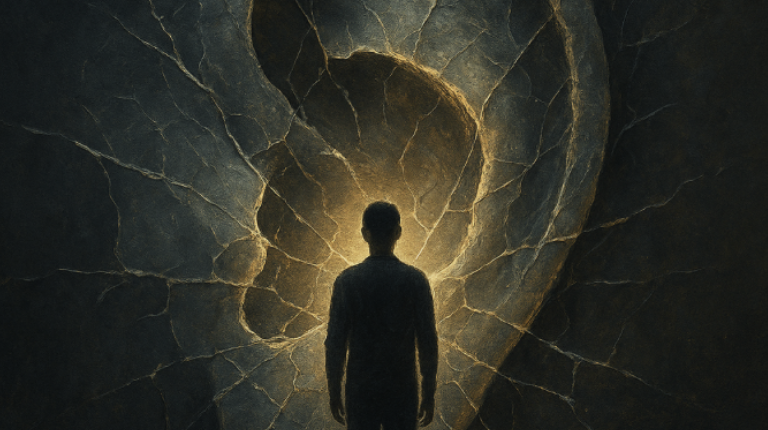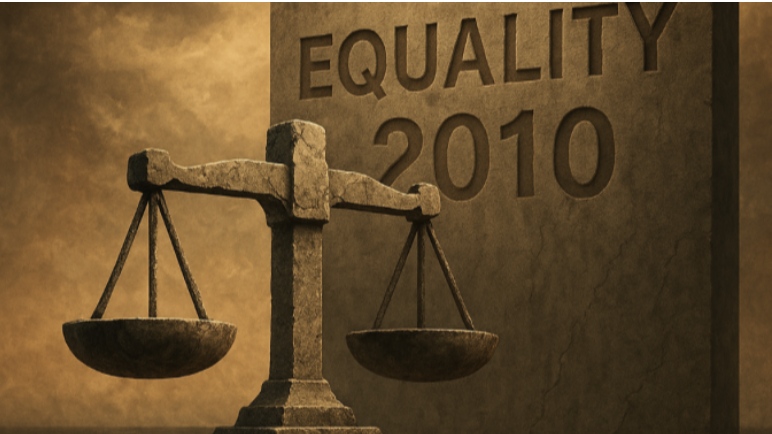
🔥 THE NIGHT WE SLEEP IN DANGER
Deaf guests don’t sleep in hotel rooms they sleep in danger.
Behind every polished lobby is a global safety system built on one deadly assumption: you will hear the alarm.
This investigation exposes the silent crisis the hospitality industry has ignored for decades; a fire-safety model that protects hearing guests while leaving Deaf travellers unalerted, uncounted, and at risk.
If a Deaf guest is asleep at 3am and the fire alarm goes off… will they survive?
Right now, the answer is terrifyingly uncertain.

What World Do I Belong To?
Growing up Deaf with a cochlear implant didn’t place me in a world - it placed me between them.
Between Deaf and hearing. Between expectation and reality. Between the identity people wanted from me and the one I was never given space to discover. This piece tells the truth the world still refuses to hear: cochlear implants don’t create belonging; they create a third culture no one imagined, researched, or prepared us for. A story of identity, grief, resilience, and finally claiming a world of our own.

The Equality Act 2010: The Law That Promised Equality and Legalised Exclusion
The Equality Act 2010 was meant to protect Deaf people.
Instead, it built a system where exclusion is lawful, access is optional, and discrimination hides behind the word “reasonable.”
When a hospital tells a Deaf patient they can only have an interpreter if they pay £1,500 more, that isn’t a misunderstanding - it’s the Equality Act working exactly as written. A law built on loopholes. A law that hands power to institutions instead of the people it claims to protect.
This article exposes the truth: Britain doesn’t need more awareness. It needs a redesign; a legal framework that treats communication as a right, not a luxury, and finally makes equality enforceable, measurable, and real.






Do Deaf People Have Accents?
Deaf people have accents too, but they are too often judged as mistakes rather than recognised as what they truly are: markers of resilience, identity, and survival. A Deaf accent is the sound of growing up without pitch or tone, of learning language through sight and touch instead of sound. It is also visible in the rhythm of signing, where hands carry culture and belonging just as voices carry history. To dismiss a Deaf accent as “wrong” is to dismiss a life story. It is not a flaw to be corrected; it is a voice that deserves respect.

When Silence Screams: The Deaf Reality of Tinnitus
The world says Deafness is silence. But my silence has never been silent. I was born Deaf, yet I live with tinnitus every day not a faint ring, but torment: numbers shouted into the dark, babies crying in empty rooms, bells collapsing inside my skull, music looping without end. This is not silence. It is noise without mercy. And the real question is not whether Deaf people can have tinnitus, but why medicine has never bothered to ask.

When Your Insurance Can't Hear You
Insurance promises protection. But for millions of Deaf and hard-of-hearing people, that promise collapses the moment they try to claim. No text line. No video relay. No access. Just a locked door and the insult of being told their claim is “late” or “suspicious.”
One in three UK adults lives with hearing loss. These aren’t niche customers; they’re homeowners, drivers, parents, pension holders. Yet insurers still design systems as if every policyholder can hear.
The result? Valid claims excluded. Risk models warped by silence. Loyalty mistaken for “low complaints” when customers have simply been shut out.
If protection only works for the hearing, it isn’t protection at all. It’s silence; sold at a premium.

Locked Out by Design: How Banks Engineer Deaf Exclusion
Banks claim to be “accessible,” but when fraud hits, Deaf customers are still locked out. My account was frozen because I couldn’t make a phone call; the very interpreter tool banks promote was treated as suspicious. This isn’t inclusion. It’s exclusion, engineered.

Football for Everyone? Not If You’re Deaf
Football calls itself the world’s game. But for Deaf players and fans, the world’s game has always been the hearing world’s game. Built on whistles, chants, and noise, football’s promise of unity is conditional and silence is still treated as exile.

Silence Isn’t Sexy: The Unspoken Reality of Deaf Sex
What does sex sound like if you’ve never heard it? For Deaf people, sexuality has always been framed by silence but not the kind that is chosen or eroticised. This silence is systemic: classrooms that never signed back, clinics without interpreters, porn that fetishises or erases. To be excluded from intimacy is to be excluded from humanity itself. Deaf sex is not deficit - it is a blueprint for clarity, consent, and connection that the world urgently needs to learn from.

The Real Quiet Place: Silence Isn’t Fiction for Us
“A Quiet Place” imagined survival through adaptation. Our world refuses to adapt; hospitals skip interpreters, alarms don’t flash, meetings exclude. Silence isn’t the killer; exclusion is. Until systems are built to survive silence, everyone’s safety is a fiction.

If I Don’t Dare, Who Will?
Told to lower ambitions from the start, this is the story of fighting ceilings in classrooms, workplaces, and beyond. If I Don’t Dare, Who Will? is both personal defiance and systemic indictment-the journey from survival to Deaf leadership, and the reason DeafMetrix exists: to redesign what was built to exclude.

Present but Excluded: The Silence Hospitals Never Acknowledge
Hospitals call it “family-centred care” yet exclude Deaf relatives from critical briefings. That silence isn’t dignity- it’s danger. Patient safety collapses when the people carrying care home are treated as invisible.

Are Deaf People Not Allowed to Dream?
Deaf athletes aren’t missing - they’re erased. A century after the Deaflympics, governments, sponsors, and broadcasters still deny funding, coverage, and pathways. Universality is a lie until rules and budgets change. Let Deaf children dream then back those dreams with access.

Artificial Intelligence Sign Language Interpreters: The False Promise of Access
AI signing avatars aren’t access - they’re a downgrade. They flatten living languages, hide dangerous errors, and let institutions tick compliance boxes while cutting real support. Human interpreters protect meaning, dignity, and lives. Innovation should support humanity, not replace it.

Deafness: Society's Blind Spot. Time to Wake Up and See Beyond Sound
Deafness isn’t the tragedy. A world built on sound is. From school to hospitals, jobs to emergencies, “bare minimum” access shrinks futures. Don’t perform inclusion - budget it, procure it, enforce it. Design must be Deaf-led.
